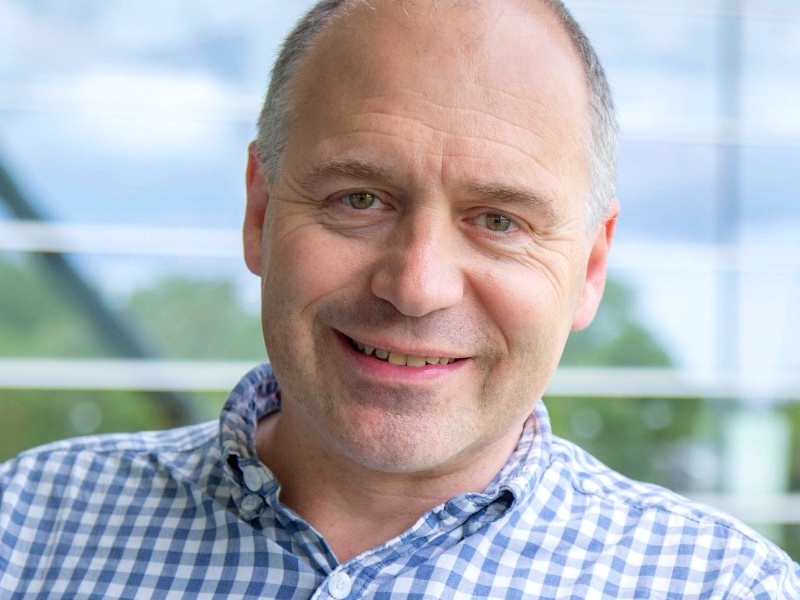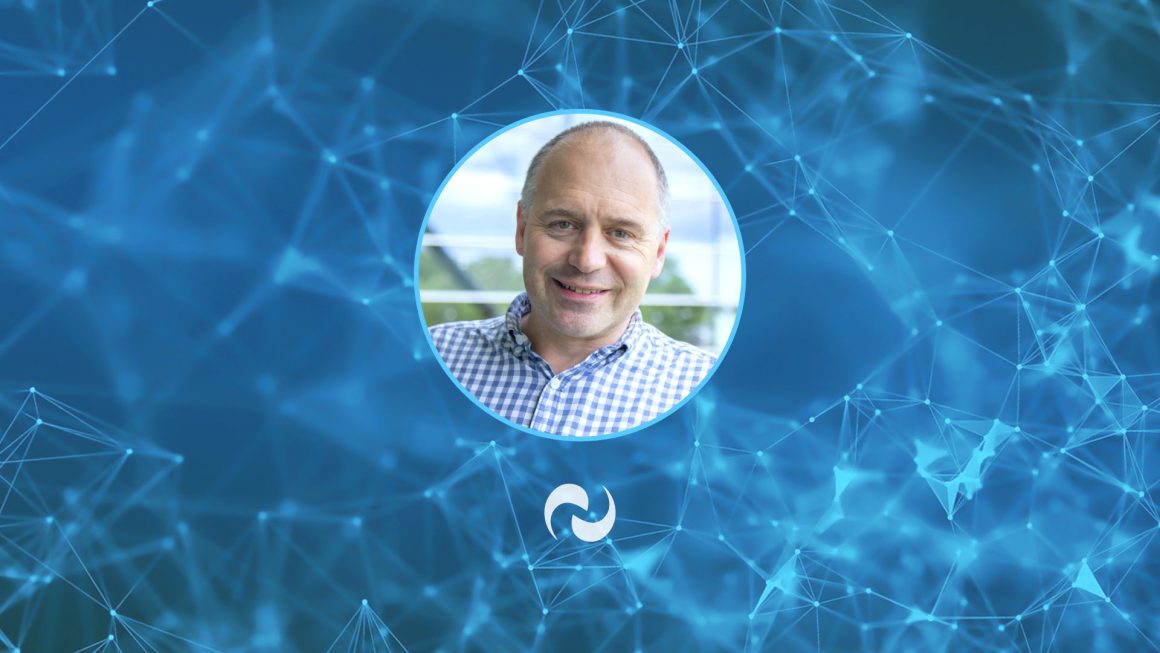Resume
Professor Richard Betts MBE has a BA in Physics from the University of Bristol, 1991. an MSc (Meteorology and Applied Climatology) from the University of Birmingham, 1992. a PhD (Meteorology), University of Reading, 1998. He is currently Head of Climate Impact Research at the Met Office Hadley Center and Professor at the University of Exeter. He currently leads the writing of the Technical Report for the 3rd UK Climate Change Risk Assessment. His areas of specialization are related to: large-scale modeling of ecosystem-hydrology-climate interactions, the carbon cycle, land use change, projections of climate impacts and risk assessment.

Richard leads research on mitigation impacts, tradeoffs, and co-benefits at the Hadley Center Climate Program, and leads research on climate impacts and disaster risk reduction at the Climate Science Association for the Service of Brazil (CSSP Brazil). Richard is Lead Author on the preparation of the 6th Assessment Report of the Intergovernmental Panel on Climate Change (IPCC). He is working on the chapter on Water in the Working Group volume 2 (Impacts, Adaptation and Vulnerability). Richard is a contributing author for the Scientific Panel for the Amazon, working on the chapter on the possible tipping point of the Amazon rainforest. He is Chairman of the Royal Meteorological Society’s Climate Science Special Interest Group.
Following his Ph.D., Richard published an influential paper comparing the impacts of carbon sequestration and forest surface albedo change on climate, and was a member of the team that published the first coupled model of the carbon cycle and climate, demonstrating the potential importance of carbon cycle feedbacks. about climate change. Later he published the first formal calculation of the radiative forcing of climate due to historical change in land cover.
In 2002–2003 Richard spent four months at CSIRO and the Australian National University working on landscape fire modelling. In 2003 he became manager of the new Ecosystems and Climate Impacts team, leading the development of this new scientific area at the Met Office. He directed and co-authored a series of articles on the potential dieback of the Amazon rainforest and its role as feedback on climate change. In 2007 he assumed the direction of the new Climate Impacts strategic area. In 2012, Richard joined the University of Exeter as Chair of Climate Impacts, alongside his position at the Met Office. In 2013 he became a Scientific Fellow of the Met Office. From 2013 to 2017, Richard led a major EU-funded international research programme, HELIX (High-End cLimate Impacts and eXtremes) which quantified the impacts of climate change at global warming of 1.5°C, 2°C and 4 °C, both globally and globally. in focus regions of Africa, South Asia and Europe. Since then, this research has spread to Brazil.
In terms of external recognition he has been appointed a Member of the Order of the British Empire (MBE) in the Queen’s Birthday Honors List 2019. Awarded the Royal Meteorological Society Award for Science Communication, 2020. Lead Author, IPCC 6th Evaluation Report (Working Group 2). Contributing author, Scientific Panel for the Amazon. Lead Author, IPCC 5th Assessment Report (Working Group 2). Lead Author, IPCC 4th Assessment Report (Working Group 1) Contributing Author, IPCC 4th Assessment Report (Working Group 2). Contributing Author, IPCC 3rd Assessment Report (Working Group 1).
INTERVIEW
Met Office Hadley Centre
The Met Office Hadley Centre, named after George Hadley, is one of the UK’s leading centers for the study of scientific issues associated with climate change. It is part of and based at the Met Office headquarters in Exeter. The Hadley Center was founded in 1990, after being approved by the then British Prime Minister, Mrs. Margaret Thatcher. The Met Office is the UK’s national weather service.

1. What are the lines of your research work at the Met Office?
– I lead work on the impacts of current and future climate change across a wide range of processes and sectors. I also lead similar work at the University of Exeter, with my 2 roles linking closely together.
2. What are the main projects you have carried out?
– I led a major EU-funded global project called HELIX (High-End cimate Impacts and eXtremes) on impacts of climate change at 1.5C, 2C and 4C global warming, looking at both the global scale and at regional scales in Europe, Africa and South Asia. I also led the Technical report for the 3rd UK Climate Change Risk Assessment, I lead the Impacts workpackage in the Met Office Hadley Centre Climate Programme and the Disaster Risk Reduction workpackage in the Climate Science for Services Partnership Brazil.
Global warming
September 8, 2022 marks the 50th anniversary of research work on global warming. The work was written by the British meteorologist John Sawyer, under the title “Man-made carbon dioxide and the greenhouse effect”, which was published by the journal Nature in 1972. In said work, some key concepts that favored warming were alluded to. man-made global.
3. What were the forecasts on global warming this scientist made 50 years ago?
– John Sawyer predicted global warming of 0.6°C by the end of the 20th Century.
4. Was he correct in his prognosis several decades later?
– He was fairly accurate – the actual warming was 0.5C. His over-estimation of warming was partly due to an over-estimation of the future CO2 rise – when this is accounted for, his projection of the relationship between future CO2 rise and warming was very accurate.
5. On what was the research work of this British scientist mainly based?
– The prediction published in Nature was based on model calculations by Syukuro Manabe, a pioneer in computer modellng of climate change, and assumptions of the future build-up of CO2 in the atmosphere.
Energy
The world is in a difficult energy situation, on the one hand, there is an increasing demand for energy and, on the other hand, current sources have mostly limited resources and their use represents negative environmental effects for all of us. The war in Ukraine has pushed up the price of gas and oil and has aggravated the energy crisis that threatens families and businesses due to rising prices.
In this context of dependence on gas and oil, as well as the need to abandon them in order to reduce emissions, the EU is accelerating the transition towards the large-scale development of renewable energies. The objective is the reduction of emissions by at least 55% that the EU has set for 2030.
In this complex energy and CO2 emissions landscape that we have, where on the one hand, Europe is trying to move away from fossil fuels in a phased manner by transitioning to renewable sources. On the other, the time pressure that the scientific community says we have to do it because it is incompatible with life on the planet.
6. How do you think we should deal with this situation of climate crisis where countries have a hard time giving up fossil fuels completely so as not to further aggravate the socio-economic situation of companies and citizens in a context of climate crisis like the one we have?
– In my opinion we should do as much as we can to accelerate the transition to low-carbon energy production, whilst also taking measures to limit demand for energy, for example by promoting more efficient transport systems and minimising the waste of energy for heating. This includes richer countries supporting less affluent countries do these as well as taking a lead themselves.
Many scientists are again calling for civil disobedience to spur climate action, saying “time is short.” For the second time this year, climate researchers are urging their colleagues to speak out through civil disobedience, in a bid to draw attention to and pressure governments to take faster and more substantive action on the climate crisis, and to better convey the seriousness with which the scientific community views the situation that threatens humanity and the environment.
In an article published on August 29, 2022 in the journal “Nature”, a group of climate scientists from Cardiff University, the University of Bristol and the University of Lausanne, together with a political scientist who studies social movements, have pointed out that “It is ethical and necessary to act through -significant- policies that move us away from the burning of fossil fuels, where we have less and less time to ensure a habitable and sustainable future.”
7. What is your opinion on this call for civil disobedience by these scientists?
– I think it is very much a personal judgement call based on individual circumstances. For some scientists this may well be a powerful way of having an influence and also provide personal comfort and satisfaction about taking action. For others it may actually remove opportunities for impact and influence by taking away the ability to be called upon by policymakers and the legal system to provide expert advice, since in those situations a criminal record can rule out contributing in this way.
8. What do you think the cited article is referring to when it uses the expression “significant policies”?
– I assume they mean far more ambitous measures to decarbonise energy and transport, along with measures to reduce energy demand such as increasing energy effiency of buildings and transport systems (eg. low carbon travel) and promoting reduced consumption of manufactured goods, along with encouraging changes in diet towards more plant-based foods.
Collective intelligence
It can be said that collective intelligence is a manifestation of innovation that arises from the collaboration of different people on a topic or issue, joining intellectual and technical efforts in order to achieve a positive result on a topic or issue that interests society. Climate change makes it essential to unite the entire global community through a systemic approach, where the parts and the whole, innovation and collaboration are essential.
9. What do you think about this global collective collaboration between science and society?
– I think collective collaboration is crucial with such a complex, system-level issue as climate change.
Circular Economy
The circular economy represents a new model of economic and social development, which identifies a series of processes in our economy in relation to the production, consumption and recycling of the products we use, in order to respect and repair natural resources, the renewal and reuse of products and their components.
But above all, the circular economy is also a concept that has to do with the economy, which is interrelated with sustainability, and whose mission is that the value of products, materials and resources (water, energy…) is maintained. in the economy for as long as possible and that the generation of waste is minimized.
10.What do you think about this new circular economy in favor of climate change?
– I think a circular economy could help limit future climate change by reducing demand for energy and hence accelerating the transition to decarbonisation.
